Alabama voters have demonstrated that there are limits to partisanship and polarization in America, even in one of the deepest red states in the nation. In an ordinary statewide election, the Republican candidate for office would have walked into the seat, swatting away the Democratic candidate like a pesky gnat. However, Roy Moore was a different kind of candidate, and the Alabama special election for the Senate seat vacated by Jeff Sessions was a different kind of race.
For the first time in over a decade, Alabamians elected a Democrat to statewide office. For the first time since 1996, Alabama is sending a Democrat to the United States Senate. Twice-disgraced Alabama Supreme Court Chief Justice Roy Moore was the Republican nominee in the state’s runoff election; he faced credible accusations of being a child predator, trolling malls and schools for underage girls to date. Those allegations added to a history of broadly offensive rhetoric, including a professed hope to criminalize homosexuality, a desire to ban Muslims from serving in Congress, and an applause of Vladimir Putin while characterizing the United States as a source of modern evil.
Still, Alabama’s conservative population provided a close race. The Democratic nominee (and now Senator-elect) Doug Jones was a pro-choice candidate in a pro-life state. Jones’ fundamental disadvantage was compounded by endorsements from President Trump, Steve Bannon, and a cadre of deeply conservative politicians and commentators in favor of Roy Moore… Those politicos embraced Roy Moore even after the credible allegations of his sexual proclivities emerged, and the Republican National Committee even resumed its funding for the race after a brief hiatus.
Yet, in the face of all of this, Alabamians looked at their choices and opted to do what many thought was unthinkable: they elected a Democrat. Surely, many Republicans stayed home or wrote in protest votes, disgusted by Roy Moore, but unable to vote for a Democrat. But still, many Republicans had to have cast ballots for the Democrat in order for Doug Jones to be elected. American voters do not always make the right choice, but in dire situations, voters and democratic institutions can prevail and do what is right. In this election, Alabamians chose to turn away a credibly-accused child predator from representing them in Congress.
But it’s important to note which Alabamians pushed Jones over the edge. The African-American vote made the true difference. It could have been Roy Moore’s reminiscence of the days of slavery when he claimed families were stronger. Perhaps it was Roy Moore’s desire to repeal constitutional amendments that ended slavery and extended African Americans the right to vote. Tonight, black voters lashed out against Moore and in favor of Jones, a man who prosecuted KKK members who bombed a black church in Birmingham in the 1960s—killing four young black girls. To put African American support for Jones into perspective, black voters composed the same percentage of the electorate tonight (29 percent) as they did in the 2008 presidential election! And black voters gave Doug Jones (96 percent) nearly the same share of the vote they gave to Barack Obama in 2008 (98 percent)!
This race tells us a lot about our politics. In a close race, like the Alabama Senate election was, forces at the margins can make a difference. Exit polling showed that President Trump’s job approval rating in Alabama was 48 percent—an admirable showing in a nation where his job approval rating hovers in the mid-30s. Yet, in 2016, Mr. Trump carried Alabama with 62 percent of the vote.
With a more popular Republican president, the Republican nominee likely would have fared better in a close race. In some ways, Mr. Trump’s weak performance as president likely weakened Roy Moore’s candidacy. Mr. Trump’s chief strategist Steve Bannon’s endorsement of Moore likely helped power him to the runoff. He also likely powered Doug Jones to the Senate. Bannon’s effort reflected what my colleague Jon Rauch and his coauthor Ray LaRaja wrote about recently—weak parties drive more extreme primary candidates who may be less appealing in a general election.
But not all the blame can be laid at the feet of President Trump, Steve Bannon, or the odd cast of characters ducking in and out of this Senate race. Roy Moore—beyond his sexual misconduct allegations—ran a truly terrible campaign, going weeks without making any public appearances. And when campaign appearances did happen, they included offensive language surrounding his views on public policy, his wife bragging about having a “Jew” lawyer, and a friend recounting a stroll into a Vietnamese brothel with underage prostitutes. In many ways, the Moore campaign was a Kafkaesque delusion, the script of which not even a hyperbolic Democratic strategist could have dreamed up.
Yes, it took tremendous forces for a Democrat to win a U.S. Senate seat from Alabama. The recipe for this outcome included outrageous but credible allegations against a Republican nominee, a weak and ineffective Republican president whose endorsement has significant limitations even in the deep South, and a disastrous campaign from a Republican candidate whose surrogates’ comments were as harmful as his own behaviors.
In any other race, Doug Jones would have been a quickly-forgotten also-ran, vanquished by a Republican candidate already packing for Washington. But Alabama believed integrity, honesty, religious values, and one’s own behaviors and history matter more than party. Alabama voters showed the country that red states don’t have to vote Republican, and there are limits to what deep partisans—of any party—can tolerate. Alabama voters, many of them guided by their own faith, showed America that it should have some faith in itself. Ultimately, Alabama voters showed that reports of the demise of American democracy have been greatly exaggerated.
It will be hard for other Democrats to win in the South, but Democrats who want to compete in places like Tennessee and elsewhere might not need a sex scandal in order to win— showing up and fielding quality candidates is the first step toward a win. And after this election, Democrats will have a newly injected sense of hope. They had a Democratic candidate in a Republican state who faced a number of obstacles in his path to the United States Senate. But, nevertheless, Doug Jones persisted.
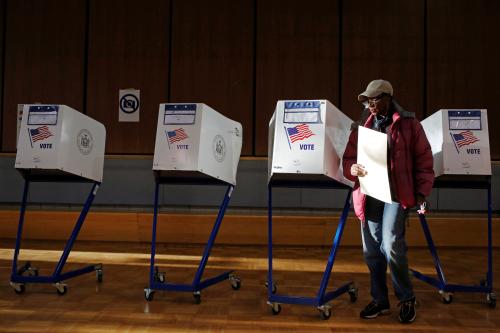
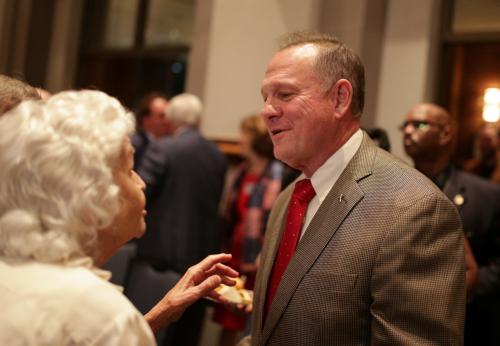
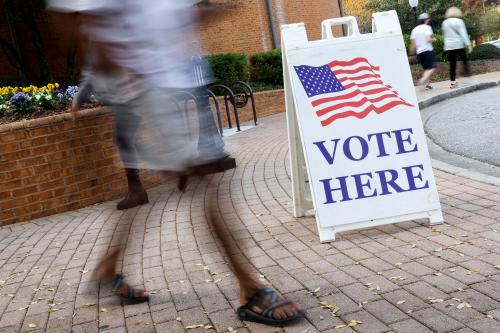





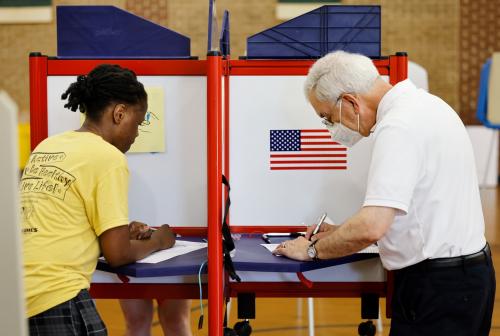
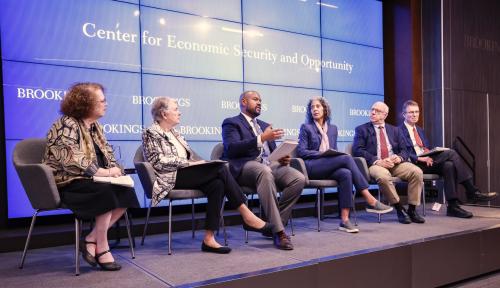
Commentary
Alabama reminds America to have a little faith in American voters
December 13, 2017